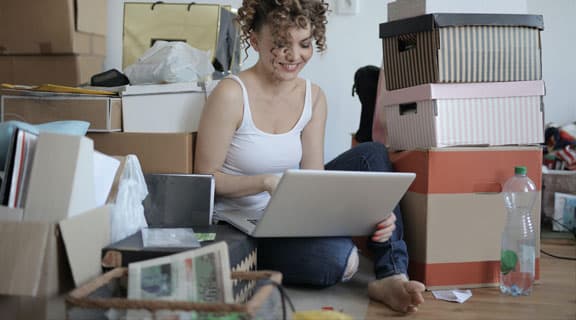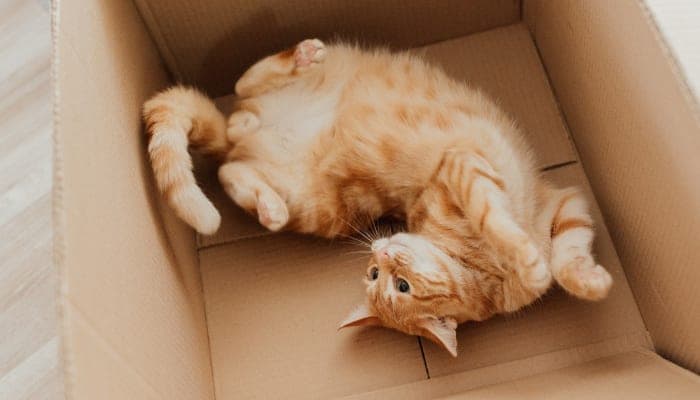Here at Go2Storage we spend a lot of our time pointing out just how versatile self storage can be, from a small unit used to put your winter wardrobe in a safe place all the way up to a business using larger units to store stock that would otherwise necessitate building an extended warehouse space. No matter how effective self storage undoubtedly is, there are some things that you simply shouldn’t put into a self storage unit.

Our Blog
What Should Not Be Stored In A Self Storage Unit

Plan Ahead
For that reason, we’d recommend that anybody putting a large number of items into storage should go through those items carefully and draw up a full inventory. If you’re not sure, you could then run through that inventory with the management of the storage facility you’re using, checking that there are no items in the list that aren’t suitable for storage. It could also be that the type of items you can safely place in storage is dictated to a degree by the type of storage itself. Some facilities, for example, use containers without the kind of climate control needed to protect items that might be damaged by excess humidity, heat or cold. Similarly, the question of access might impinge on the items which you can reasonably place into self storage. If a facility doesn’t offer twenty four hour access then it probably wouldn’t be a good idea to use it to store important documents that you might need to get hold of at short notice. The same caveat applies to business users storing stock and/or equipment. If you can’t gain access to your equipment whenever you need to, then the storage units in question probably won’t be suitable.
Taking the circumstances detailed above into consideration, it is still possible to draw up a list of items which shouldn’t be placed into self storage due to the nature of those items themselves, and these include the following:
Food
Some food can be safely placed in self storage, such as canned goods with a long shelf life, but anything else is a no-no. Perishable goods, for example, will do exactly what it says on the tin (or jar or bottle) and perish, meaning that if you leave them for any length of time you’ll open up your unit to find a pile of mouldy and deeply unpleasant ex-food. Even if the food itself survives storage it could attract a range of vermin, from rats and mice to insects, something which will affect not only you but everybody else using the facility. Even if you’re only storing a small amount of food, the vermin it attracts could then go on to wreak havoc with the rest of your items, chewing through wires, paperwork and plastics and nesting amongst your valued possessions.
Anything Vulnerable To Rodents
As a side note to the folly of putting perishable food into self storage it's worth pointing out that you should think very carefully about how you store anything which might be vulnerable to attacks from vermin such as rats or mice. In simple terms, the only kind of container which can be guaranteed impervious to the sharp teeth of a curious rat or mouse is one which is made of metal, and anything less might mean that valuable items such as documents, family photographs or works of art could be attacked. When you’re choosing your storage facility, ask about the measures they take to protect against pest infestations, and carry out your own search for tell-tale signs such as droppings, torn and shredded fabrics or papers in other parts of the facility. A storage unit is an ideal nesting spot for mice, for example, because it offers warmth and shelter and, in many cases, will remain undisturbed for weeks or even months at a time. Even if the storage unit in question seems to be very well-sealed, bear in mind that a mouse can squeeze through a hole the size of a pencil.

Animals
Yes, you read that correctly, we’re warning you not to put animals – live animals that is – into a storage unit. The reason why we’re posting this warning is because it has been known to happen. Most of the stories about animals being found in self storage units are pretty unsavoury in nature, as it’s a tactic which is only likely to be employed by unethical individuals looking for a cheap way to breed and sell the animals in question. This seems to have been the case with the self storage unit in Hernando County, Florida which – upon inspection by suspicious police officers – was found to contain seven dogs kept in terrible conditions, including two Chihuahuas locked in a crate with no access for water. Luckily, on this occasion the dogs survived and were taken to a place of safety by the authorities, but that isn’t always the case. When 42 pythons were discovered placed in plastic containers in a storage facility in California, 22 of them had sadly already perished, underlining the simple truth that a locked self storage facility is simply no place to be putting living creatures.
Plants
One of the items which people often find they have amassed over the years when the time comes to move into a new home are plants. Lots and lots of pot plants. If you’re trying to make the process of moving more streamlined, or stripping the house right back to make it appeal to potential buyers, then you might be tempted to put some of your plants – particularly larger ones – into self storage. You may even promise yourself that you’ll visit regularly to water them, and persuade yourself that they’re not really alive, not like a pet, but, and it’s a big but, plants left in a sealed storage unit are going to die. The lack of light and fresh air is one thing, as is the fact that you’re bound to forget to keep visiting and watering them. In addition to these issues, plants in a storage container – especially if they start to die and rot – will smell bad and attract insects and other infestations.
Flammable Items
If you run a small business such as painting and decorating, then you may be tempted to store some of your equipment in a self storage unit away from your home. In the case of clean brushes, paint trays and ladders (to choose three random painter and decorator-type items) this may seem like a good idea, but the logic does not apply to the paint itself or to substances such as paint thinner and cleaning solvents, all of which could be highly flammable. The same applies to more obviously flammable items such as gas canisters and tins of petrol. Every once in a while there is a fuel shortage or scare, and fire and rescue services across the UK have to issue warnings about just how dangerous storing petrol can be, with even the vapour given off by the petrol being highly flammable.

The same care needs to be taken by anyone thinking of storing sawdust, such as someone who houses small animals and uses the substance for bedding. Sawdust packed away in containers is still likely to give off clouds of highly flammable dust which can cause a fire or even explosion if exposed to a source of ignition. Other flammable materials which might not immediately spring to mind include fertilizers and cooking oil.
Tyres
Most storage companies will refuse permission to store tyres in their units for two reasons. The first is that tyres are highly flammable and could cause a huge amount of damage if they catch light. The second is that if the tyres end up being left by a customer who simply stops paying the rental on their storage, the facility will have to foot the bill for safely disposing of them.
Firearms & Explosives
First things first, if the firearms and explosives are illegal in nature then you can file them alongside all the other things – such as illicit drugs and stolen items – that you really shouldn’t be putting into a storage unit. Even if you have a licence for your firearms and hold them for legitimate reasons, a self storage unit is not the place to keep them. The law states that firearms need to be stored in a secure location where it is not possible for people without firearms certificates to access them. For most holders of firearms, this will mean a secure gun cabinet which has been assessed by the police. A self storage unit, on the other hand, could be accessed by multiple people, and although your individual unit may be secure, it is not legally owned by you, and therefore doesn’t pass legal muster.
Valuables
A self storage unit can be extremely secure, particularly if it is part of a facility equipped with features such as CCTV cameras and motion detectors, but it still doesn’t really reach the levels of security required for the most valuable items. Clearly, your furniture and belongings may be very valuable to you, but what we’re talking about here are one-off items such as diamonds and other jewellery, artworks and even actual cash itself. For items of this kind we would always recommend a specialist solution such as a safe deposit box within a bank.
Illegal Goods
It sort of goes without saying that you shouldn’t put illegal items into your self storage unit because…well…they’re illegal. Whether we’re talking drugs, weapons, tobacco and alcohol smuggled into the country in the back of a white van or stolen works of art, storing anything which isn’t strictly legal in nature raises a couple of bright red flags. Firstly, it will be in contravention of the terms and conditions of any contract you’ve signed with the facility and secondly, the presence of illegal items- no matter how innocuous you might feel they are – puts the owners of the self storage facility and everyone else using it at risk. The scale of the problem of people thinking self storage is a convenient solution for storing items such as counterfeit CDs, DVDs and computer games is such that in August 2021 the UK government launched the Tick Box: Keep It Real Keep It Legal campaign. This takes the form of a code of practice designed to help the people running self storage facilities to identify individuals (likely to be part of a wider organised criminal gang) using their units to store illicit items. So that’s another good reason not to do it – the powers that be are determined to catch you at it.

Adultery
Yes, you read that right and yes, we’re now getting on to the stranger end of the spectrum when it comes to things you really shouldn’t be putting into self storage. The early 2010’s saw a spate of stories alleging that cash-strapped couples conducting secret affairs had taken to enjoying their passionate trysts in the confines of low-cost self storage units. We’re not really sure if ‘enjoying’ is the right word to use in this context. Few people could be more convinced of the usefulness and value of self storage units than the gang at Go2Storage, but even we think that repurposing them as some kind of love nest is pushing things a bit too far. Could you? Of course, if you close your eyes and tell yourself you’re spending the afternoon in a minimalist hotel with metal walls and a concrete floor. Should you? Absolutely not is our verdict.
Yourself
Times are tough in the UK, and finding somewhere affordable to live is more difficult than it has been for many years. We’ve previously written about people using self storage as a solution when they are caught between homes and need somewhere to keep their furniture and other belongings, but every now and then a story will surface about a person using their storage unit as a temporary home. The appeal of moving into a storage unit for someone who is genuinely homeless is clear – it’s secure, safe from the elements and cheaper than any bedsit. The downside is that even the best units are emphatically not built for human habitation, and that living in one is not only dangerous – thanks to the lack of fresh air, light and running water and the very real risk of fires – but also against the rules and, in the UK, actually illegal. In April of 2019 the Self Storage Association (SSA) issued a warning to failicty operators referring to a 12 minute video in which an individual claimed to have lived in his storage unit for 2 months. Although the facility in question checked details such as CCTV footage and access logs to determine that the video was almost definitely a scam, the SSA felt it could encourage other desperate people to try the same thing, and so warned facility operators to be on the lookout.